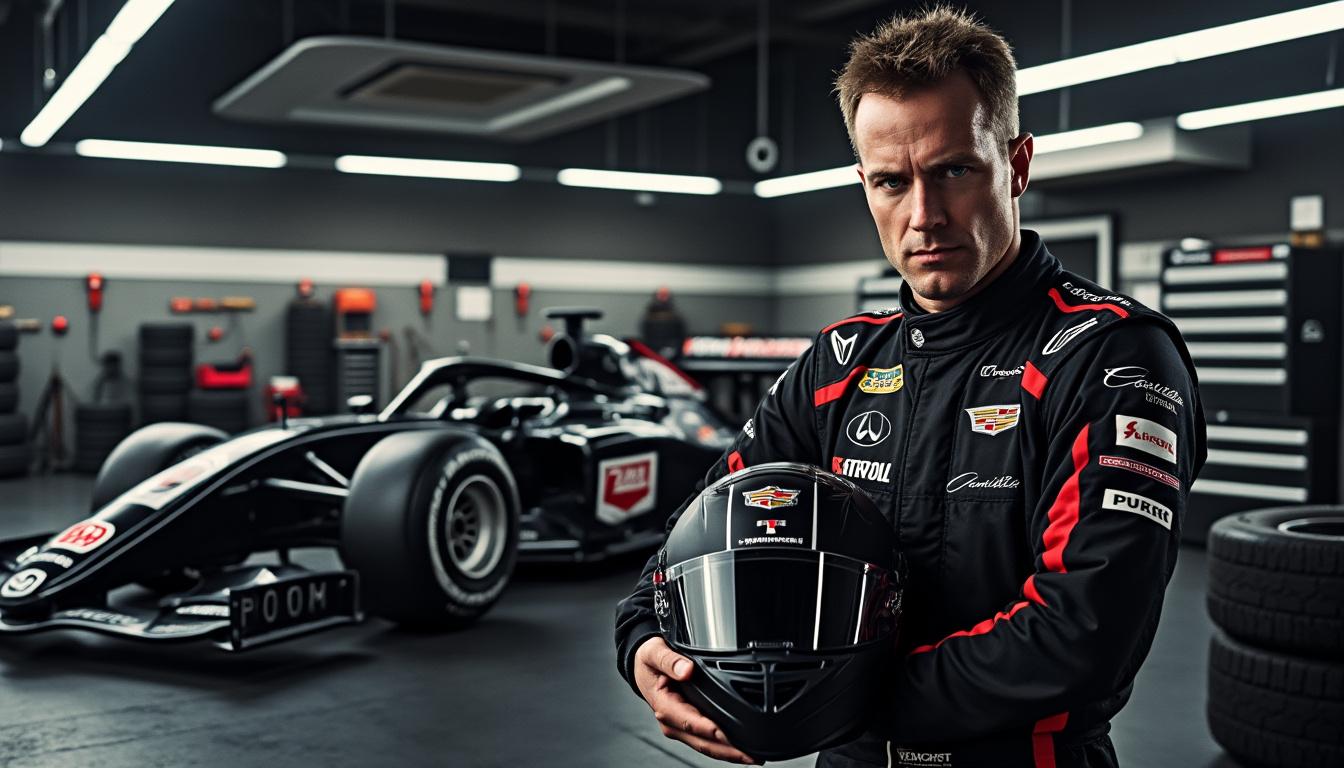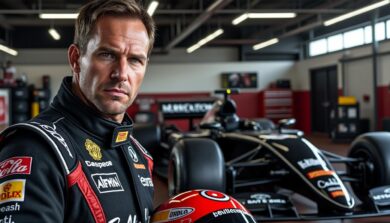The excitement is palpable as Cadillac gears up for its inaugural season in Formula 1. As the clock ticks down to 2026, the spotlight is firmly on the crucial decision of selecting their driver duo. With eyes on the racetrack, the stakes couldn’t be higher for this ambitious new team.
Choosing the right drivers can make or break their entry into this high-octane sport. Speculation is swirling, and all eyes are on potential candidates. Among the names floating around, one stands out for its controversy: Mick Schumacher. Jacques Villeneuve offers a stern warning against his recruitment, suggesting that experience is the way forward. Instead, he champions Valtteri Bottas as a more fitting choice for the American team. As Cadillac prepares to navigate a competitive landscape filled with challenges, their driver lineup will be pivotal to their success. The decision looms large on the horizon, reflecting the dynamic nature of F1 and the importance of wisely balancing risk and experience.

Jacques Villeneuve warns Cadillac: steer clear of Mick Schumacher
Cadillac’s entry into the Formula 1 world is fast approaching, with the 2026 season set to mark a significant milestone for the American manufacturer. However, as they gear up for their debut, the question of who will pilot their cars remains a hot topic. Recently, former world champion Jacques Villeneuve strongly advised against considering Mick Schumacher as a potential driver for the team. This warning raises crucial discussions around team strategy, experience, and the future of Cadillac in the competitive landscape of F1.
Why is Mick Schumacher considered for a F1 seat?
Mick Schumacher, son of the legendary Michael Schumacher, is often on everyone’s lips when discussing new talent in Formula 1. At 26 years old, he carries with him a significant legacy. His time with Haas from 2021 to 2022 brought mixed results: while he showed glimmers of his potential, his performance was marred by costly errors and a series of crashes that seriously impacted the team’s financial viability. With only two points finishes to his name, Schumacher’s stint at Haas left many questions regarding his readiness for a return to the grid.
The expectation surrounding Mick could be attributed to his surname, but racing is not influenced solely by legacy. Cadillac, preparing to make waves in the sport, needs seasoned talent. As Villeneuve pointed out, bringing in a driver who has not successfully established himself in F1 could jeopardize the team’s chances right from the outset. Many are surmising that his time spent as a reserve driver at Mercedes and competing in the World Endurance Championship (WEC) with Alpine is still insufficient to prove that he can thrive in the high-pressure arena of F1 racing.
With the introduction of new engine regulations for 2026, Cadillac aims to craft a formidable engineering platform. They must navigate the intricate landscape of talent acquisition carefully. This means weighing Schumacher’s potential against seasoned drivers who offer stability and experience; an ideal mix that could spell success in their inaugural season.
What does Jacques Villeneuve think about Mick Schumacher?
Jacques Villeneuve’s opinion carries weight in the motorsport community, given his pedigree. The Canadian champion, who celebrated glory in the 1997 season, asserts that it would be unwise for Cadillac to pursue Schumacher. According to Villeneuve, there is “no reason” for the team to consider the young driver, especially since he hasn’t been on the grid since late 2022. Illustrious drivers often benefit from the pressure and intensity of racing, and Schumacher’s absence has raised concerns about his readiness to compete at this level.
Villeneuve underscores the fact that Cadillac should prioritize a driver with a proven track record, particularly as they face the challenges of entering Formula 1 against well-established teams and seasoned racers. Villeneuve continues to emphasize the need for experience, quoting, “Talent is important, but understanding how to navigate F1’s complexities, especially in a new team, is essential.”
His warning isn’t merely a critique of Schumacher but rather a strategic insight aimed at guiding the rookie team toward success. It suggests a broader understanding of F1 dynamics, where experience often translates into better decision-making on the track. Villeneuve believes the pressures of F1 may overwhelm inexperienced drivers, particularly at a new team like Cadillac.
Who should Cadillac consider instead of Schumacher?
Villeneuve champions the idea of hiring a more experienced driver, and one name has risen to prominence: Valtteri Bottas. Formerly racing for Mercedes and currently serving as a reserve driver, Bottas brings with him a resume featuring ten Grand Prix victories. His record speaks volumes, showcasing his ability to win at the highest level and adapt to varying conditions and team strategies.
Bottas’s extensive experience with Mercedes could provide Cadillac with the tactical prowess it needs during its formative years in Formula 1. Villeneuve mentions, “Bottas has proven he can win races. His years with a leading team like Mercedes provide insights that a new team would benefit from immensely.” Furthermore, Bottas recently faced a challenging time at Alfa Romeo which could ignite his passion to compete in F1 again.
The unique dynamic of this potential pairing is exciting. Combining a young, adventurous team like Cadillac with a driver who has tasted victory could result in a thrilling narrative for fans. It reflects the balance between youth and experience, an essential strategy as the team aims to cement itself in the competitive world of Formula 1.
How can Cadillac ensure a smooth entry into F1?
The challenges Cadillac will face transcends just picking the right drivers. Their entrance into Formula 1 is rife with complexities, from assembling a skilled technical team to achieving regulatory compliance and developing a potent power unit. The F1 landscape is unforgiving, and even established teams encounter challenges frequently.
In the first two seasons, Cadillac will operate as a customer of Ferrari, gaining invaluable insights as they become familiar with the nuances of F1 machinery. This arrangement allows them to focus on the fundamentals of racing while adhering to the performance demands set forth by the sport. Establishing strong partnerships within the paddock will also play a vital role in their success.
Moreover, an emphasis on development and research is crucial. The new engine regulations expected in 2026 could present intricate challenges requiring not just a competitive engine but also innovative strategies for aerodynamics, tire management, and other elements pivotal in a driver’s performance. Building a reliable team culture that leverages the strengths of both veteran and rookie drivers is also a strategic move that will define Canadian roots in the sport.
In addition to strategic driver selection, the overall management structure should establish clear lines of communication and decision-making processes. Having someone with a F1 background on the management team can anchor the organization in its initial formations, ensuring they capitalize on their learning curve effectively.
Cadillac faces pivotal decisions that will impact not only their initial season but their long-term viability in Formula 1. Balancing ambition with prudent choices is essential as they embark on this exciting journey into motorsport’s elite.


